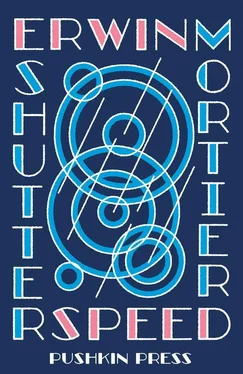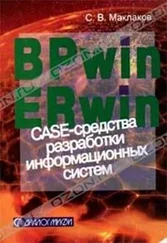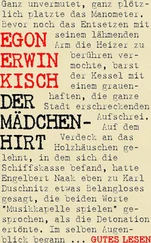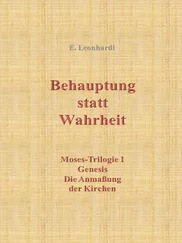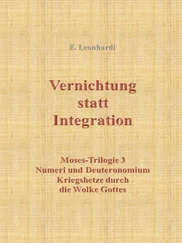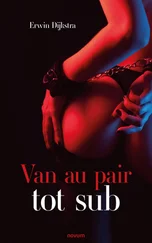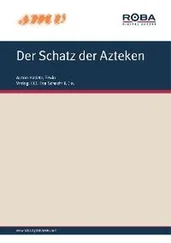Here she repeats the same gesture. At a table set up in the garden she offers my father a spoonful of jam to taste, cupping his chin with her free hand. He cranes his neck, mouth agape. She holds the spoon just beyond his reach.
There is no sign of me anywhere. But the fruit trees behind them look familiar. The white-washed trunks are a little thinner than I remember, but I can tell by their leafy crowns and the deep shadows on the grass that June is drawing to a close. They must have been picking cherries. In the scullery there would have been a pan on the boil, and steaming jars lined up on the draining board.
It is their last summer without me. She is as round as a cannonball. Her breasts loll like mounds of fat on her midriff. Her arms are strewn with freckles, as if inside the batik tent-dress she were succumbing to the never-ending thirst with which I am sapping her lifeblood.
I must have dug my heels into her stomach, butted my head against her bladder, sent her running to the kitchen pump day and night to gulp down water in an effort to dull the vicarious craving for sugar, pickled herring or raw milk, made her want to purge her flesh of me, who was plundering her like a larder.
With an expression of wonder, which with hindsight qualifies as maternal love, she gazes at the white bundle in her arms. My father sits on the side of the bed, leaning over to run a fingertip over my brow. He seems afraid to touch me — me, half of him, but more inextricably entwined with her than he has ever been.
In the chapel at the hospital he watches impassively as Uncle Werner lights the baptismal candle while their mother, wasted by the disease that will soon kill her, holds me over the font. She looks uncertain, almost as if I could slip from her hands any moment. In the next picture my father, having taken me from her arms, pulls funny faces in the hope of quieting my howls.
I cannot possibly remember any of it, and yet I can see his face before me, vague and ethereal like the marbled rainbow stripes on the lenses of my binoculars.
On the evening after my First Communion, while the sky clouded over, I stood by the open window in my bedroom and unscrewed the caps on the lenses. Aunt was downstairs doing the dishes, Uncle Werner was feeding the hens in the back yard.
It took me a while to work out how to adjust the focus so that the church appeared in minute detail. I could distinguish the hairline cracks in the rendering on the spire, just as I could count the leaves of the linden tree in the road, pale green against the darkening sky.
I told myself there must be a world out there stocked with all the images that had never been captured, except by the sunshine perhaps, which always seemed to absorb a smattering of whatever it illuminated, reuniting it God knows where with all those two-dimensional figures patiently prised from frames, albums or the depths of the old suitcase in which I kept my most treasured possessions.
I waited until it was nearly dark before dragging the case out from under the bed, raising the lid and adding my mother’s letter to the others inside.
The coppery sheen of the sun sinking behind the trees that evening conjured a vast, shimmering lake or reservoir, an afterlife of once reflected surfaces, fragile and inaccessible.
I see the same light, but much longer ago. In a room somewhere I hear footsteps, a door swings open on squealing hinges and someone calls my name.
Try as I may, I cannot pull myself upright. I feel anger welling up inside me, the briny prickle of tears in my eyes.
I remember my shoes: blue with leather laces. I can still hear the sound they made on the tiles when I flew into a rage and kicked all my cars, building blocks and pencils across the room.
I see my father reaching out to me. There is something about his broad grin that makes my mother’s soft features seem surprisingly stern at times.
Hanging on to his fingers to pull myself up, I almost lose my balance, and a tingling sensation shoots down my shins.
In some pantry or kitchen at the back, a leaky tap drips on to the lid of a saucepan, and the echo rings with the emptiness of the whole house.
My father lifts me, makes the wind whistle in my blond hair and throws me up in the air, higher and higher. My chest tightens. I hear myself shriek more in terror than in mirth as my body leaves his hands and I grow conscious of being surrounded by air.
He probably cried something like ‘Up you go, Joris! Fly!’ But his lips offer no clues.
I do not know who took that picture, who it was that left me suspended for ever in mid-air above my father’s splayed fingers, like an alarmed putto in a painting.
OF THAT LAST SUMMER I HAVE ONLY A FEW DISTINCT memories. In the unrelenting heat of those months the days seemed to run together into a single, long day, as though intent on confirming Aunt’s prediction that this would be the last of the good life for me. The world was immersed from May to late August in the shimmer of a dream, deep beneath the surface of sleep. I was eleven and had learned about Newton. I could write and spell, I could read the hands of the clock and work out what time it was outdoors, where the hours made a difference.
The day the photographer came to take the annual class photo our master, Mr Snellaert, turned up at school wearing his best suit and his homburg with a jaunty blue feather tucked in the headband.
He lined us up four rows deep in the playground, in the shadow cast by the arcade. July was already weighing down the trees. The end of term was drawing near, and I was feeling the hypnotic approach of the summer holidays.
‘I shall count up to five,’ said the master. ‘At three you keep still, and at five we’ll be done.’
He snapped his fingers and we held our breath. A dry click sounded and the next thing we knew it was all over.
I wore the beige nylon shirt Aunt Laura had quickly ferreted out from the top shelves in the shop, where skeins of knitting wool awaited the cold season like eternal snow. The fabric chafed my arms and chest and irritated the skin of my neck. The stubborn smell of plastic packaging and cardboard collar-strip lingered in the seams all day long.
I felt strangely crease-proof, starched, new, and when we filed back to the classroom Mr Snellaert growled: ‘Alderweireldt, boy, you gave your usual impression of an ironing board, that’s for sure.’
He always had me in his sights. There were times that I suddenly felt the weight of his eyes, his latent sarcasm impinging on me like a fly on my forearm when I was busy lining up my ruler exactly parallel to the side of my desk, or couldn’t decide where to lay my jotter — underneath or beside my reading book — or how to position my protractor or my pencils, but most of all when for the umpteenth time I frantically crossed out the opening line of my composition, shielding the page with my left arm for fear that the words I needed would evaporate before I had a chance to commit their sounds to paper.
Just as unexpectedly he would lay a heavy hand on my shoulder, as if he had crept up on me, soundlessly treading on the tiled floor in which his soles had worn out a shiny path.
‘Eyes like marbles and still you don’t know where to look,’ he said, pushing my head down over my desk.
His fingers seemed to be kneading the muscles around my bones, massaging my spine to make it longer, and shaking my head so that the thoughts, which were like as not lost in the branches of the apple tree by the big window, fell from my hair like unripe fruit.
‘Get on with it. Too finicky by half, you are …’
The boys squirmed in their seats, nudging and smirking, but it could also happen that their gales of laughter descended on me like a hailstorm, especially when the master went round collecting up the exercise books while I was still labouring to end what I had scarcely begun, my handwriting chasing over the lines in an ever wilder scrawl.
Читать дальше
